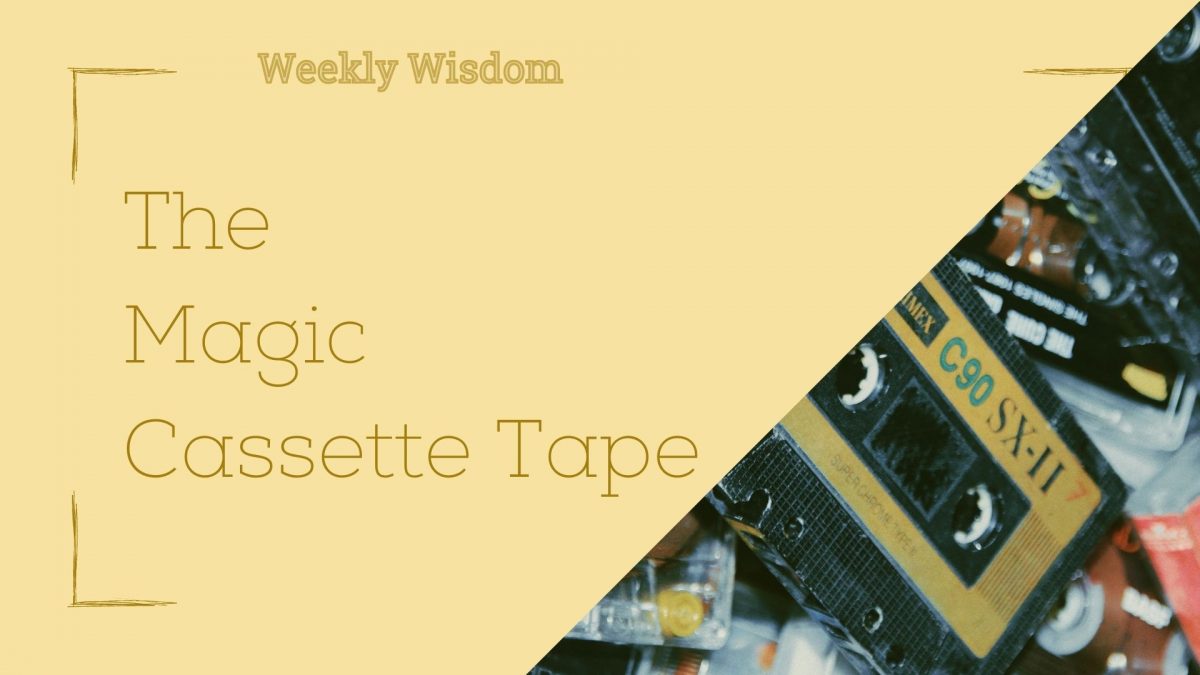Hello Subscribers, New and Old.
Welcome to Weekly Wisdom, your weekly dose of highlights, quotes and notes from my notebook. If you would like to receive this in your inbox, subscribe now.
Something I learned
Snowflakes are unique, but come in many shapes. The common factor is that they are nearly flat. Only micrometers in thickness. The nature of water molecules results in hexagonic prisms of ice crystals when frozen. If the basal facets of these prisms extend, they turn out to be columns. If the prism facets extends, we get flat snowflakes. These flat snow gather up moisture and then extends to form the beautiful plates we usually associate with snowflakes.
To say that no two snowflakes are alike is as ridiculous as saying no two grains of sands are alike. Both statements a factually correct, but they miss the truth.

Something(s) to read/listen
- Mixtape by RadioLab: I grew up with Audio Cassettes. My family owned a cassette manufacturing factory. To me they were a given. This series by RadioLab contextualizes how revolutionary the medium was to the world. It is a fantastic series that weaves in the history of music, propaganda, software piracy, and mixtapes as expression.
- Nassim Taleb’s twitter: To treat all opinions equally is the only real type of political correctness. Some ideas are stupid, and should not be taken seriously. Nassim Taleb seems to have taken that to heart. His feed is mostly statistics and taking down hacks like Jordan Peterson and Balaji Srinivasan
Some Quotes and Notes
Wisdom of the Crowd
Investor Aziz Sunderji recounts how he almost bought Lehman Brothers bonds weeks before their demise and the real depth of the financial crisis became public. He saw that LB bonds were trading at dirt cheap prices and an ‘expert’ advised him to buy.
So I seek the advice of our head of bank bond trading—the guy whose job it is to trade Lehman bonds on the bank’s account all day. He’s a friendly guy named Russell. There are few people on the planet who know more about Lehman bonds than Russell.
Our conversation goes like this:
Aziz: “Hey Russell, full disclosure this is a PA question.”
Russell: “Shoot.”
Aziz: “Lehman senior bonds…they look cheap. Think I’m going to buy some. What are you thinking here?”
Russell: “Yeah mate, the market is pricing these dead-wrong. But why are you messing around with the seniors, you should buy the [much riskier] junior stuff…way more juice there.”
Aziz: “Right but like…those seem a bit risky? Like, it’s conceivable if shit really hits the fan that they don’t get repaid, right?”
Russell: “Mate, if Lehman doesn’t pay we’ve got much bigger problems…ain’t gonna happen, trust me.”
…
Markets may not be perfectly efficient, but they are sufficiently efficient that trying to second guess them for profit is almost always a fruitless exercise.
— Aziz Sunderji, How to invest
Gazing into the Abyss
Matt McManus, writing for Quillette, has a series on why you should read controversial philosophers. The one on Nietzsche is the best one. It is also a great exploration of why you should explore ideas that offend you, sometimes.
Nietzsche disdained consumer culture and capitalism, seeing it as producing vulgar and decadent societies of “last men” focused on the pursuit of meaningless wealth and menial satisfactions. These last men lived out their days in material affluence, but were committed to no truly great projects, mostly concerned with issues like “health” and physical appearance.
— Matt McManus, Why We Should Read Nietzsche
Life’s Work
Author and Youtuber John Green shares his thoughts on what we can refer to as our life’s work.
Probably my favorite book about writing is Annie Dillard’s The Writing Life which contains the brilliant observation “how we spend our days is of course how we spend our lives”. It’s a reminder to me that while they tend to separate the ideas of a day’s work and a life’s work they aren’t really separable because lives are made out of days. Like today I will attend several meetings and get a haircut and call a plumber none of which feels like my life’s work but it is because how we spend our days is how we spend our lives. Which means of course that I should be very careful how I spend my days but in trying to be careful I quickly run up against a huge obstacle; which is that while aspirational capitalism may tell me that I have absolute choice in how I spend my life the truth is I don’t.
Like I have been immensely privileged in my professional life but even so I don’t have that much choice in what I do with my days like tomorrow for example I cannot go to space because I have an inner ear disorder and also I’m not a billionaire…
Thank you for joining me this week. If you know some who might enjoy this, please forward this email to them. See you next week.
Mudassir Chapra

